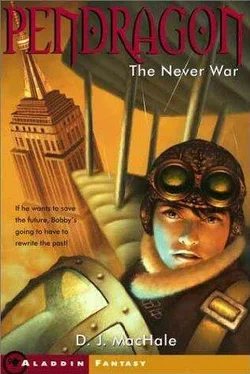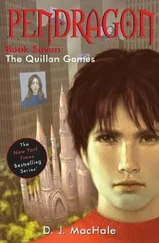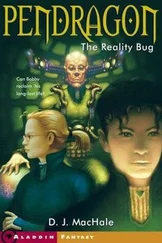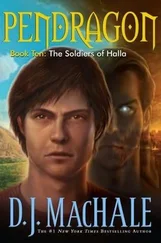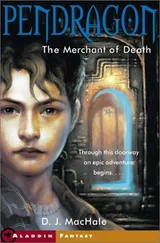D. MacHale - The Never War
Здесь есть возможность читать онлайн «D. MacHale - The Never War» весь текст электронной книги совершенно бесплатно (целиком полную версию без сокращений). В некоторых случаях можно слушать аудио, скачать через торрент в формате fb2 и присутствует краткое содержание. Жанр: Фантастика и фэнтези, на английском языке. Описание произведения, (предисловие) а так же отзывы посетителей доступны на портале библиотеки ЛибКат.
- Название:The Never War
- Автор:
- Жанр:
- Год:неизвестен
- ISBN:нет данных
- Рейтинг книги:3 / 5. Голосов: 1
-
Избранное:Добавить в избранное
- Отзывы:
-
Ваша оценка:
- 60
- 1
- 2
- 3
- 4
- 5
The Never War: краткое содержание, описание и аннотация
Предлагаем к чтению аннотацию, описание, краткое содержание или предисловие (зависит от того, что написал сам автор книги «The Never War»). Если вы не нашли необходимую информацию о книге — напишите в комментариях, мы постараемся отыскать её.
The Never War — читать онлайн бесплатно полную книгу (весь текст) целиком
Ниже представлен текст книги, разбитый по страницам. Система сохранения места последней прочитанной страницы, позволяет с удобством читать онлайн бесплатно книгу «The Never War», без необходимости каждый раз заново искать на чём Вы остановились. Поставьте закладку, и сможете в любой момент перейти на страницу, на которой закончили чтение.
Интервал:
Закладка:
“Pine trees,” Gunny said. “That’s what you’re smelling.”
He had read my mind. The green subway kiosk was built on the edge of a dense grove of pine trees. It was a far different smell from the chemical fume-odor of First Earth.
There were a few odd buildings scattered around that looked like a jumble of boxes stacked on top of one another. They must have been apartment buildings because I saw people out on their balconies, talking and reading and playing and basically hanging out.
There were streets, but rather than the normal grid pattern of a city, these roads gently curved around the natural terrain. There was traffic, but the cars were small, and must have been powered by electricity because the only noise they made was a gentle hum. Many people rode bikes or walked or zipped along on those two-wheel jobs I had seen underground. I also saw a lot of small, dark green shelters scattered around. We had just stepped out from under one of them. My guess was that these shelters marked the entrances to the incredible underground complex below.
“The first time I came here,” Gunny said, “I just stood and stared like you’re doing right now. Then I got this wonderful, warm feeling.”
“Why’s that?” I asked.
“Because I realized it may have taken a few thousand years, but we finally got it right.”
“It’s incredible,” I said. “Why didn’t you tell us?”
“I figured we had more important things to handle back on First Earth,” Gunny answered. “The future would always be here. It’s the present we have to worry about.”
I then heard a friendly voice call to us. “Looks like we’ve got a couple of tourists in town!”
A small car slid up behind us that wasn’t much bigger than a golf cart. It was much sleeker than a golf cart, though, with a front end that came to a narrow point and had regular-size wheels. It was a silver vehicle, with no top and four seats facing forward.
Behind the wheel was a guy who looked to be in his twenties. He had long brown hair, bright eyes, and a big smile. He was dressed like a normal guy from Second Earth, with jeans and a dark green, short-sleeved shirt.
“Afternoon, Patrick,” Gunny said. “Thanks for coming to fetch us so quickly.”
Patrick jumped out of the car and gave Gunny a warm hug. “Good to see you, Gunny. Where’s the wild man?”
Gunny motioned to me and said, “This is his nephew, Bobby Pendragon.”
Patrick shook my hand with a firm grip. “Pendragon! Press told me you’d be showing up someday. I’m glad to meet you.”
“Me too,” I said.
“So? Where is he?” Patrick asked.
Gunny gave me a look. The answer had to come from me.
“Press is dead,” I said softly. I didn’t know how else to say it.
I saw the genuine look of pain on Patrick’s face. The three of us stood there silently for a moment, out of respect.
“I’m sorry, Bobby,” Patrick finally said. “Your uncle was like a brother to me. I’m going to miss him.”
I nodded. Wherever Uncle Press went, no matter how many lives he touched, he always made friends. With everybody but Saint Dane, that is.
“Just before he died,” I said, “he told me it was the way it was supposed to be. I have a tough time buying into that.”
“I know,” Patrick said softly. “But Press believed it. And sure as we’re standing here right now, I can’t remember a time when he was wrong about anything.”
I nodded.
“We need your help, Patrick,” Gunny said, getting to business. “I thought you could take us to that library place.”
“Absolutely. Hop in.”
Since this was my first visit to Third Earth, Gunny got in back and I sat next to Patrick. My new Traveler friend hit the accelerator and we zipped ahead.
“Have you ever been to the New York Public Library in Manhattan?” he asked me.
“I’ve been by it,” I answered. “The place with the big stone lions in front, right? Is it still there?”
“Yes. But, well, things have changed a little.”
“Yeah, no kidding,” I interrupted. Patrick laughed. “I’ve been to First and Second Earth. I hear you,” he said. “But there are still many links to the past. There’s a strong sentiment that history should be respected and honored. You’ll see what I mean.”
Saying that things had changed was the understatement of all time. New York City, as I remembered it, was gone.
This was once an area where every square inch was cemented over or built on. It was clogged with traffic and people and noise and air pollution. I’m not saying it was a bad place, but it was definitely a busy place. What New York had become in the year 5010 was very different.
We drove our silent car along a winding road through the country. Trees lined the nearly empty roadway. Off to either side were beautiful, green, rolling hills. Every so often I saw another of those odd, boxy buildings where people lived, but besides that you would think we were driving through Vermont. There were even a few farms with rows of lush fruit trees. When we passed one, I got the definite smell of apples.
“Where is everybody?” I asked.
“I’ll give you the short version,” Patrick said. “By the mid-twenty-first century, we were running out of natural resources. Pollution was worse than ever and overpopulation was beyond serious. Governments had to start getting smart or it would have been disaster. From then on, Earth functioned as one planet, as opposed to a group of countries with different agendas.”
“So they went underground?” I asked.
“That was one solution. It began with manufacturing and energy. There are power plants close to the center of the planet.”
“Unbelievable,” was all I could say. ”It took more than a thousand years, but by the year 4000, every commercial enterprise was moved underground. From factories to the Gap stores.”
“You still have the Gap?” I asked.
“I think that sweater you’re wearing came from there.”
I took a closer look at the sweater. It didn’t look much different than what I could have gotten on Second Earth. Good old Gap. Gotta love ‘em.
“The only businesses that stay above ground are farms and some solar power facilities,” Patrick explained. “Most of the big power sources are out West in areas that are unpopulated.”
“Makes sense,” I said.
“Then people began relocating underground as well. There are vast housing complexes just below the surface, all interconnected by a train system.”
“Isn’t that a little claustrophobic?” I said.
“Not as bad as it was on the surface. We were running out of space. That’s what prompted the other move. We not only went down, we went up.”
“Up?”
“Space colonies. It started with Space Station Alpha at the turn of the twenty-first century. A few larger orbiting space platforms soon followed. From there we could jump out farther. The next step was the moon. There were colonies of a thousand people each, living on the moon by the year 3000. Mars was next, followed by Venus and two of the moons of Jupiter. By last count there are one hundred and fifty-five million people living off-planet. Combine that with the fact that people finally started getting smart about family planning, and we finally achieved zero population growth.”
This was a future that could only be imagined by science fiction writers in my time. ”Are there colonies under the sea as well?” I asked.
“Oh yeah, that too,” answered Patrick. “But that’s not significant. Maybe only a few million people are in underwater habitats.”
“A few million? Not significant? Amazing.”
“I’ll tell you what was amazing,” Patrick said. “Once man began to pull back from the surface, nature began to take charge again. Pollution was reduced. The air and water gradually cleaned up. Forests reemerged, starting with the rain forests in South America. In a lot of ways it was like the world took a giant step backward.”
Читать дальшеИнтервал:
Закладка:
Похожие книги на «The Never War»
Представляем Вашему вниманию похожие книги на «The Never War» списком для выбора. Мы отобрали схожую по названию и смыслу литературу в надежде предоставить читателям больше вариантов отыскать новые, интересные, ещё непрочитанные произведения.
Обсуждение, отзывы о книге «The Never War» и просто собственные мнения читателей. Оставьте ваши комментарии, напишите, что Вы думаете о произведении, его смысле или главных героях. Укажите что конкретно понравилось, а что нет, и почему Вы так считаете.
